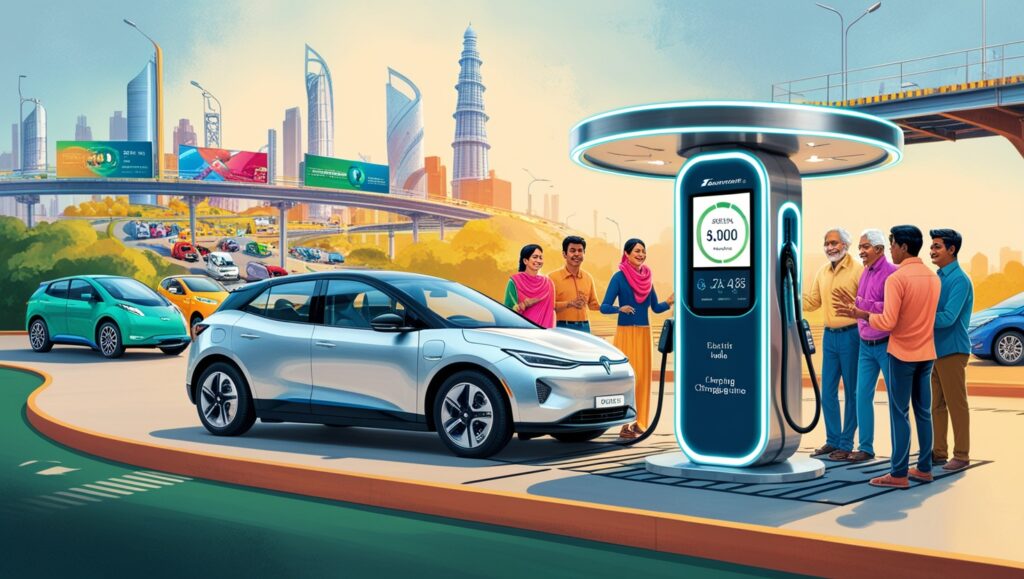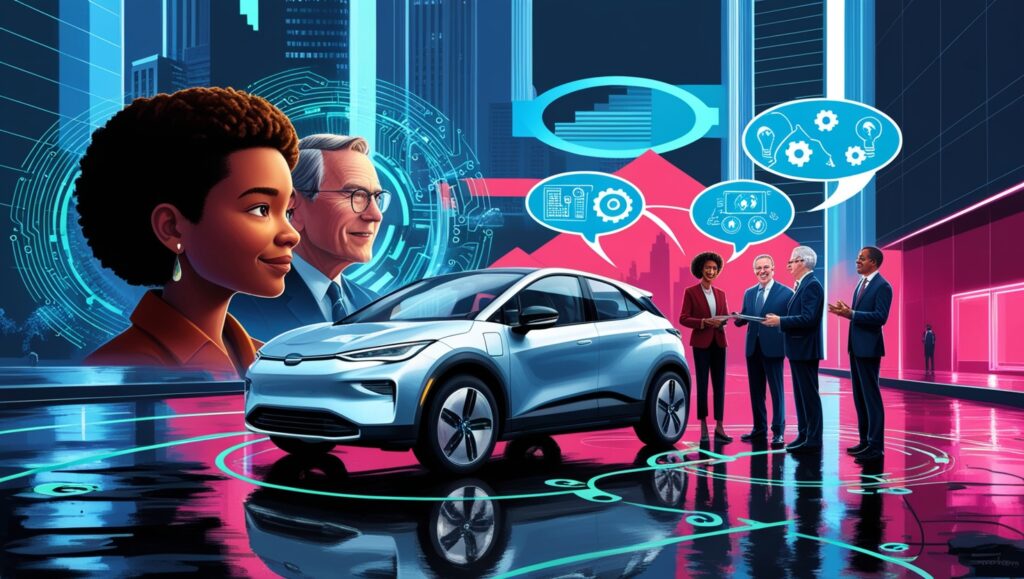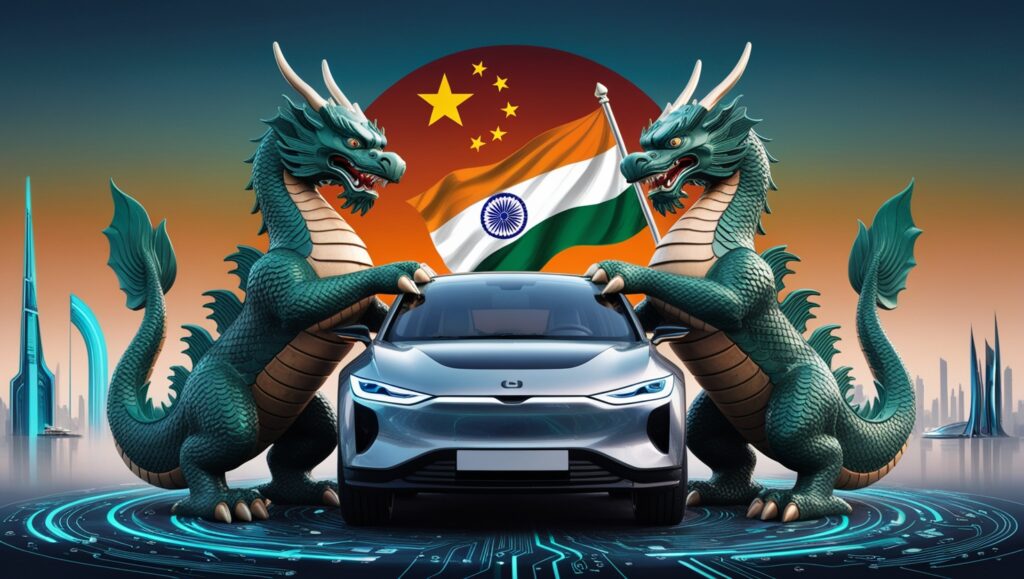China has recently instructed its automakers to avoid making electric vehicle (EV) investments in India, a decision that could significantly impact the growing electric mobility industry in both countries. As EV News 2024 develops, this move comes amid heightened geopolitical tensions and trade restrictions between the two nations, and it raises important questions about the future of the electric vehicle sector.
In this article, we’ll explore the reasons behind China’s decision, its potential effects on the Top Electric Vehicles, and how it might change the landscape of Top Electric Vehicles News. We’ll also dive into how India’s EV market will evolve without China’s influence and what this could mean for Best Electric Vehicles Price, Best Electric Vehicles Blogs, and Top Electric Vehicles Brands.
The Geopolitical Context Behind China’s Move
The decision from the Chinese government comes at a time when relations between India and China are strained due to territorial disputes, economic competition, and growing concerns about trade imbalances. Over the past few years, India has taken steps to reduce its reliance on Chinese products and investments, particularly in critical sectors like telecommunications, infrastructure, and electric vehicles.
This backdrop of political and economic tension has led China to discourage its automakers from investing in India’s burgeoning EV market. The Chinese government fears that investing in India could expose its companies to risk and undermine its geopolitical standing. This directive has had a direct impact on Top Electric Vehicles Brands and Top Electric Cars Brands, as many of these brands are looking to expand internationally. India, being one of the largest emerging EV markets, was a prime target for these investments.
Impact on India’s Electric Vehicle Market

India has been rapidly expanding its EV industry, aiming to become a global leader in clean energy and electric mobility. The country has introduced various incentives, subsidies, and schemes to attract both domestic and international investments in its EV sector. China’s decision to halt EV investments could slow down the progress in this sector, particularly for companies that were hoping to leverage Chinese technology and expertise.
Without the backing of Chinese automakers, Indian manufacturers will need to rely more heavily on domestic resources and partnerships with non-Chinese companies. This could open up opportunities for other global Top Electric Vehicles Brands, such as Tesla, Rivian, and European automakers, to fill the gap left by Chinese firms. Additionally, Indian startups in the EV space may now have a better shot at capturing a significant share of the market, potentially impacting Best Electric Vehicles Price and availability.
Indian EV Manufacturers to Watch
Several Indian companies are already making waves in the Top Electric Vehicles sector, and they are likely to benefit from China’s decision to step back. Key players include:
- Tata Motors: A leading name in the Best Electric SUV category with the Tata Nexon EV, one of the most popular electric cars in India.
- Mahindra Electric: Known for its commitment to green mobility, Mahindra Electric is one of the strongest competitors in the Indian EV space.
- Ola Electric: Primarily focused on electric two-wheelers, Ola Electric has been making strides in producing the Best Electric Bike and expanding its product range.
These companies, along with others, will now have a clearer path to dominate India’s EV market, especially as they compete in the Top Electric Cars Price and Top Electric Vehicles Brands categories.
The Influence of Chinese Technology in the EV Sector

China has long been a global leader in electric vehicle technology, particularly in the development of batteries, charging infrastructure, and electric drivetrains. Chinese companies such as BYD, NIO, and Xpeng have made significant advancements in these areas, setting the pace for global EV innovation. However, with the recent directive to halt investments in India, these advancements may no longer directly influence India’s EV market.
The absence of Chinese investments could slow down the adoption of new technologies, such as faster charging solutions and more efficient batteries, both of which are crucial for improving Top Electric Vehicles reviews and Top Electric cars reviews in India. On the other hand, it could push Indian companies to invest more heavily in their own research and development, fostering innovation from within the country.
Battery Production and Supply Chain Challenges
One of the most significant aspects of EV production is battery manufacturing, and China dominates this sector globally. With China discouraging its automakers from investing in India, the Indian EV market could face challenges in sourcing affordable, high-quality batteries. This could drive up costs, potentially impacting Best Electric Vehicles Price and making electric cars less affordable for consumers in India.
To mitigate this, India may need to seek alternative suppliers from countries like South Korea, Japan, and the United States, which are also leaders in battery technology. Expanding domestic battery production could also be a long-term solution, though it would require significant investments and time to scale.
The Future of Electric Vehicle Infrastructure in India

Another area where Chinese companies have played a significant role is in the development of EV charging infrastructure. Without their investments, India may struggle to build the necessary infrastructure to support widespread EV adoption. Best Electric cars Charging Blog 2024 posts frequently discuss the importance of fast-charging networks, and while India has made progress, there is still a long way to go.
With China out of the picture, Indian companies will need to focus on expanding the charging infrastructure. This is a critical component of the EV ecosystem, as consumers are more likely to adopt electric vehicles if they know that charging stations are readily available. To achieve this, partnerships with international companies and government support will be key to ensuring that India’s EV infrastructure can meet the growing demand.
Potential Opportunities for Other Global Players
China’s withdrawal from the Indian EV market could create opportunities for other global players to step in. Automakers from the United States, Europe, and Japan could find India a more attractive market without the competition from Chinese companies. This shift could lead to new collaborations, technologies, and innovations entering the Indian market.
Companies like Tesla, which has been eyeing the Indian market for years, may now have a better chance of establishing a foothold in the country. The Top Electric Vehicles News frequently discusses Tesla’s potential entry into India, and with Chinese competitors stepping back, the timing may be right for Tesla to make its move. Similarly, European automakers like Volkswagen, BMW, and Renault could see this as an opportunity to increase their presence in India’s EV market.
The Role of Government Policy in Shaping the Future

Government policy will play a crucial role in determining how the Indian EV market evolves in the absence of Chinese investments. India’s government has already implemented several initiatives to boost the production and adoption of electric vehicles, including the Faster Adoption and Manufacturing of Electric Vehicles (FAME) scheme and tax incentives for EV buyers.
To ensure that the market continues to grow, the government may need to offer additional incentives to attract foreign investments from non-Chinese companies. This could involve easing regulatory hurdles, offering subsidies for battery production, and investing in EV infrastructure. By doing so, India could maintain its momentum in becoming a global leader in electric mobility, even without Chinese support.
How Will This Affect Consumers?
For consumers, China’s decision to restrict EV investments in India could have both positive and negative effects. On the one hand, without Chinese competition, Indian and non-Chinese manufacturers may increase their market share, leading to more choices in Top Electric Vehicles and Top Electric Cars Brands. This could result in better products and competitive prices as companies vie for dominance.
On the other hand, the lack of access to Chinese technology and affordable components, particularly batteries, could drive up the Top Electric Cars Price, making EVs less affordable for the average consumer. In the long run, this may slow down the mass adoption of electric vehicles in India.
EV Reviews and Consumer Opinions
As the market evolves, consumer opinions on Top Electric Vehicles reviews and Top Electric cars reviews will be crucial in shaping future trends. Manufacturers will need to focus on delivering high-quality, reliable electric vehicles at affordable prices if they hope to capture the attention of the Indian consumer base.
Conclusion: A Pivotal Moment for India’s EV Market

China’s decision to halt EV investments in India is a significant development with far-reaching consequences for the electric vehicle industry. While this move may pose challenges in the short term, particularly in terms of technology transfer and battery supply, it also presents opportunities for Indian companies and other global players to step up and fill the gap.
India’s electric vehicle market is still on a growth trajectory, with or without Chinese investment. The future of the Best Electric Vehicles Brands and Best Electric Vehicles Blogs will depend on how well Indian companies adapt to this new landscape, how quickly infrastructure can be developed, and how government policies can support this transition.
